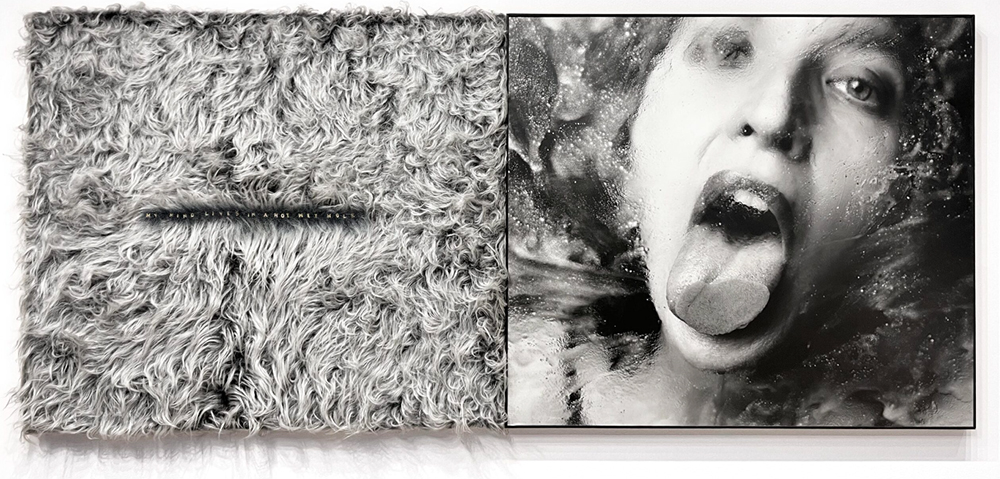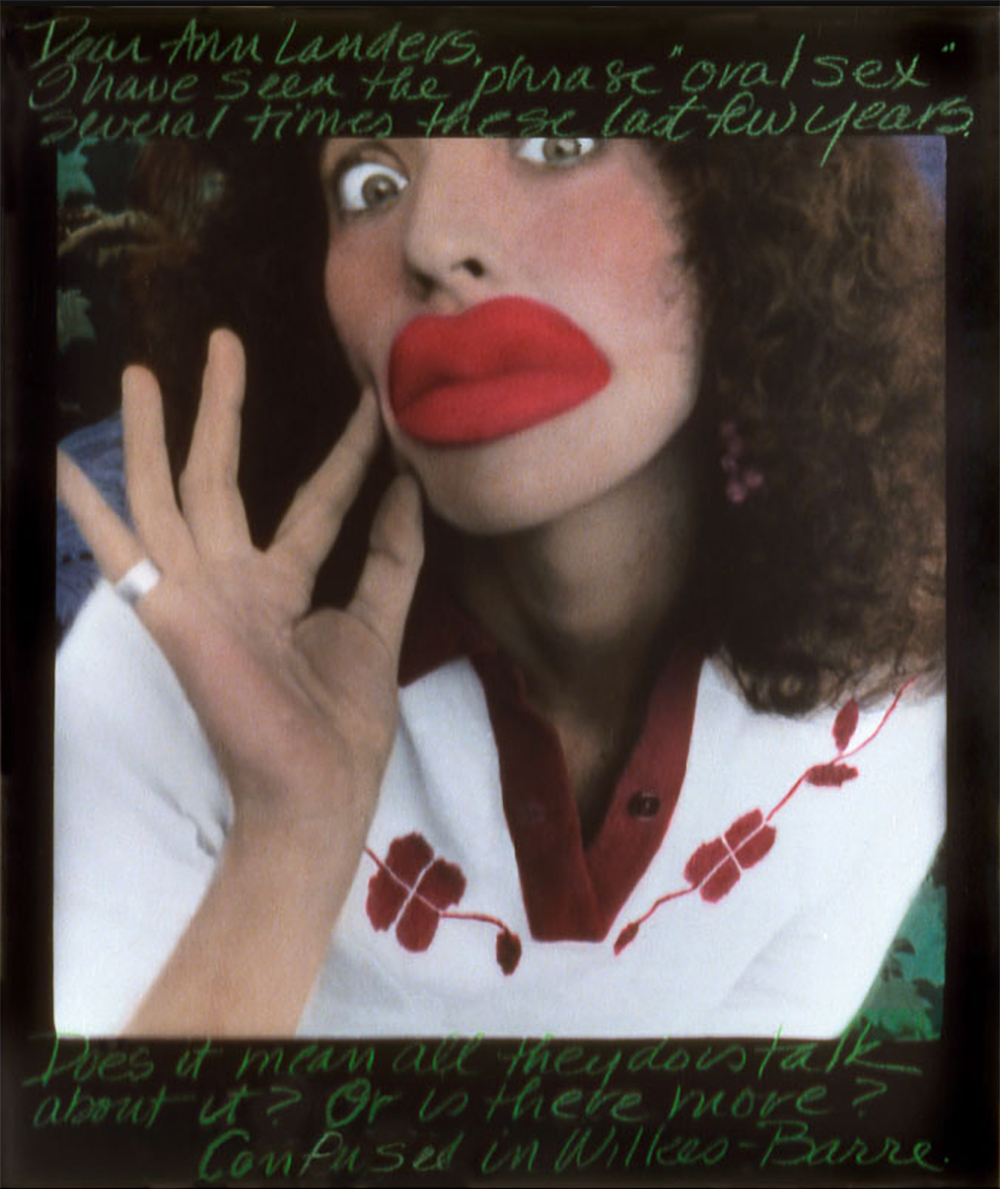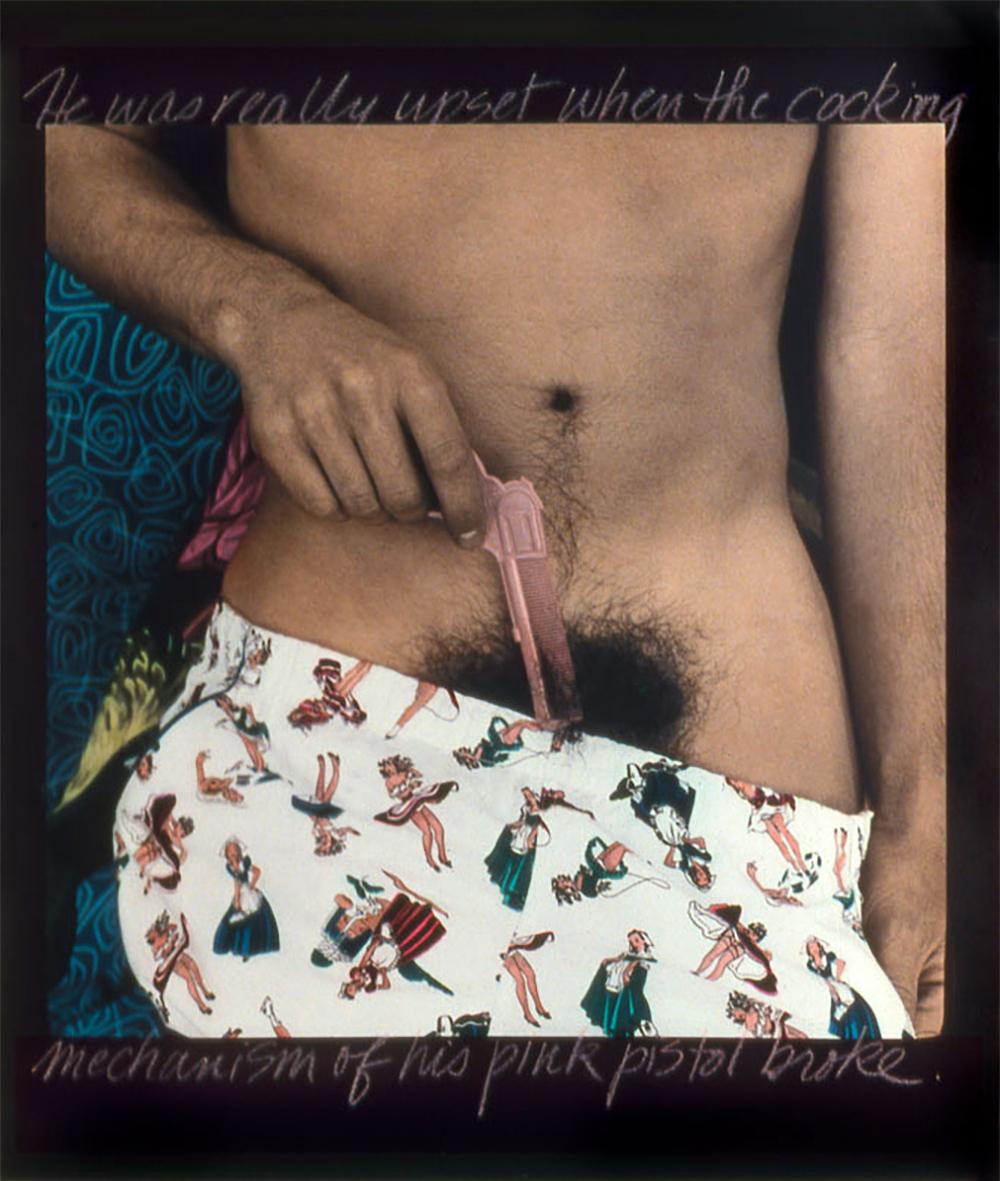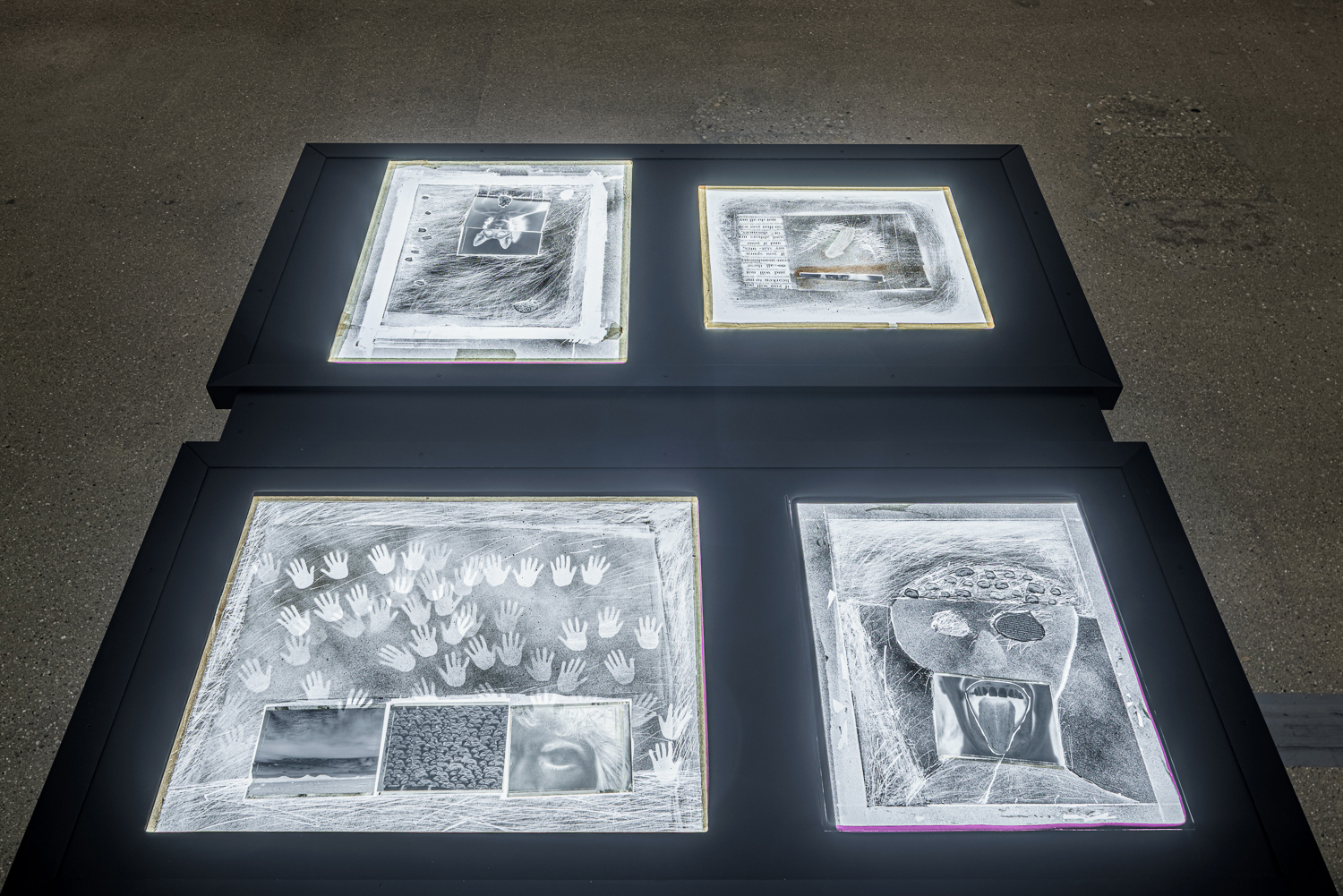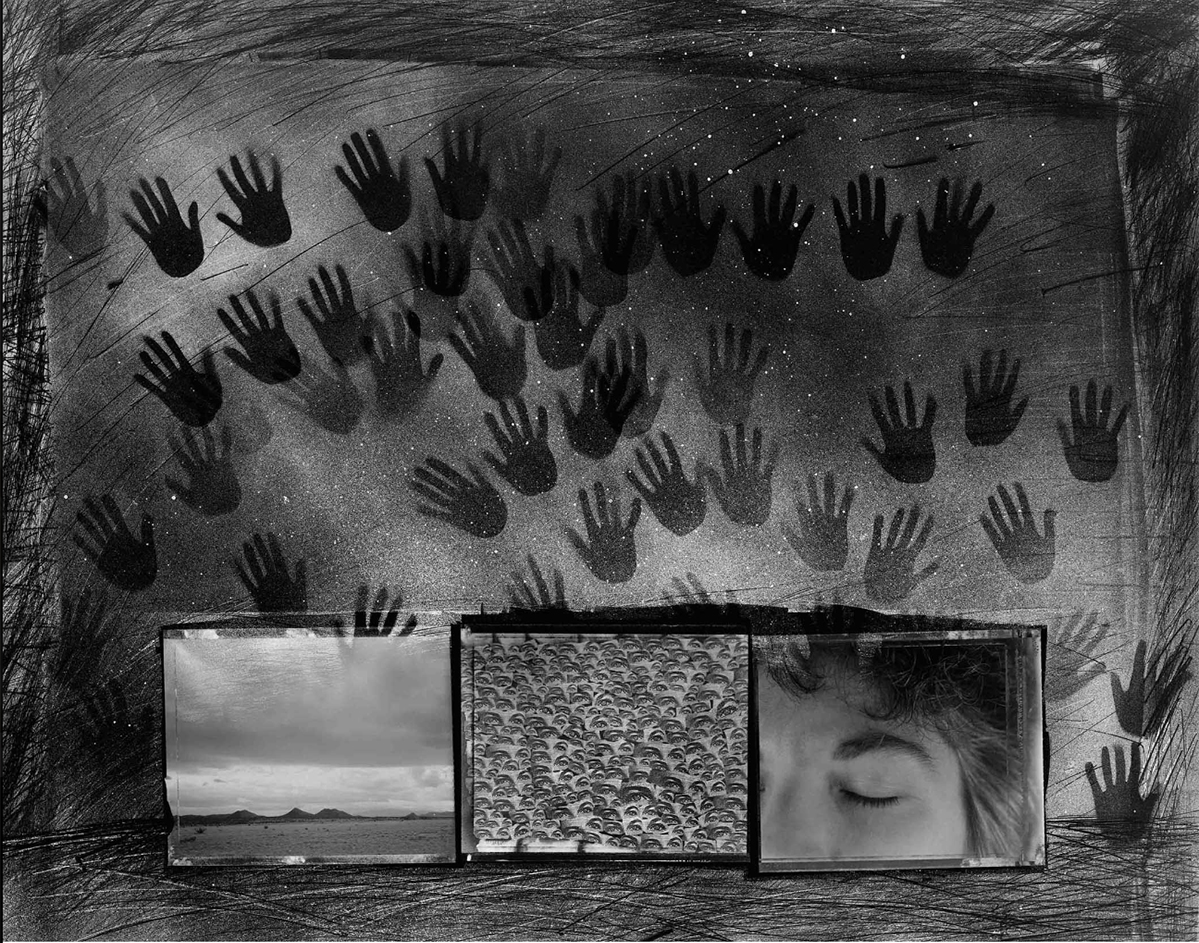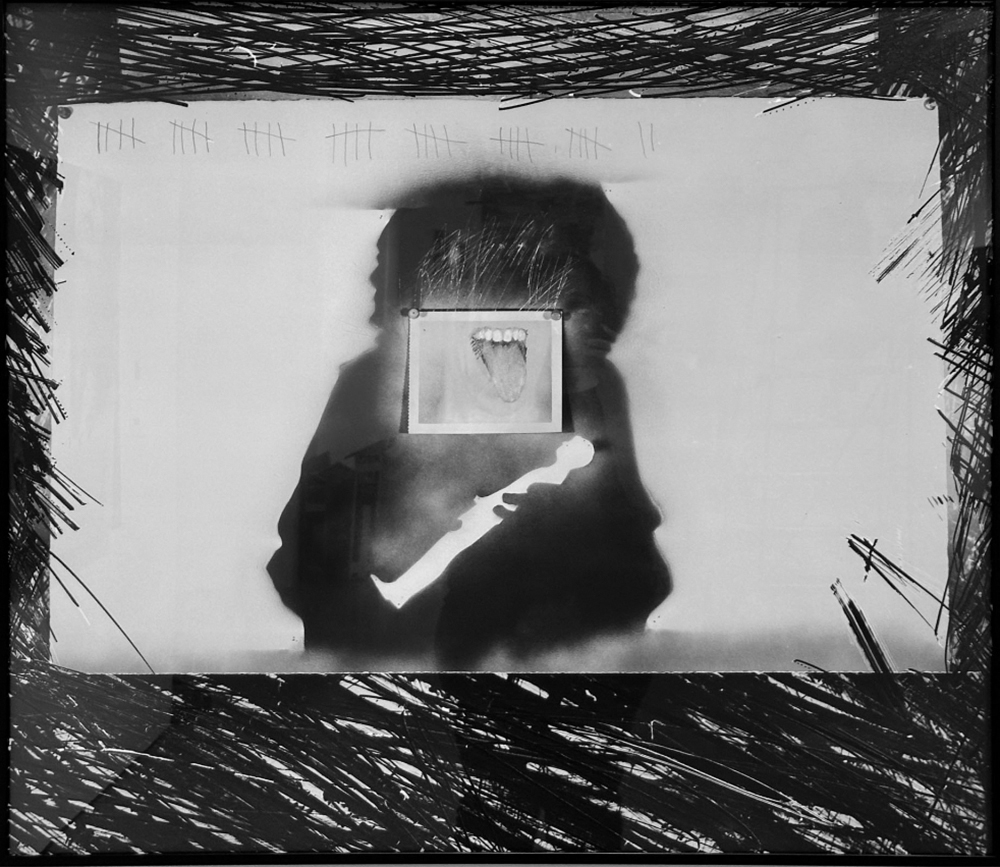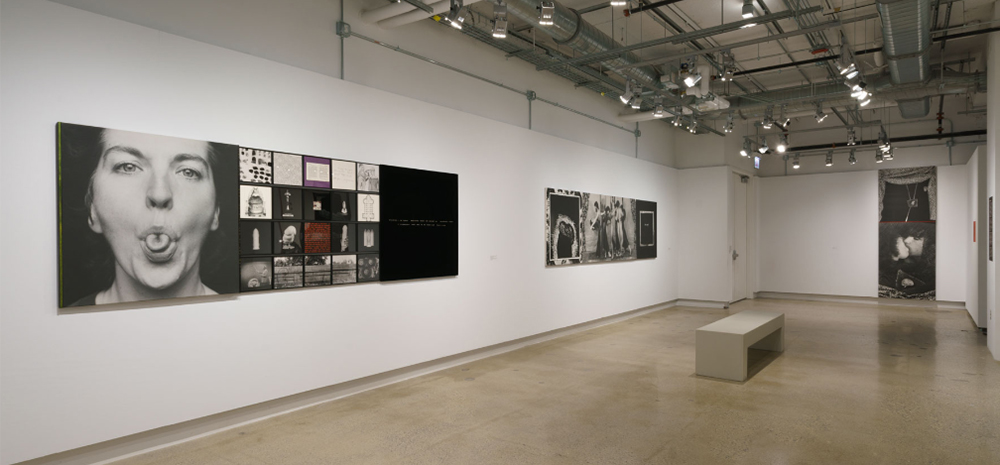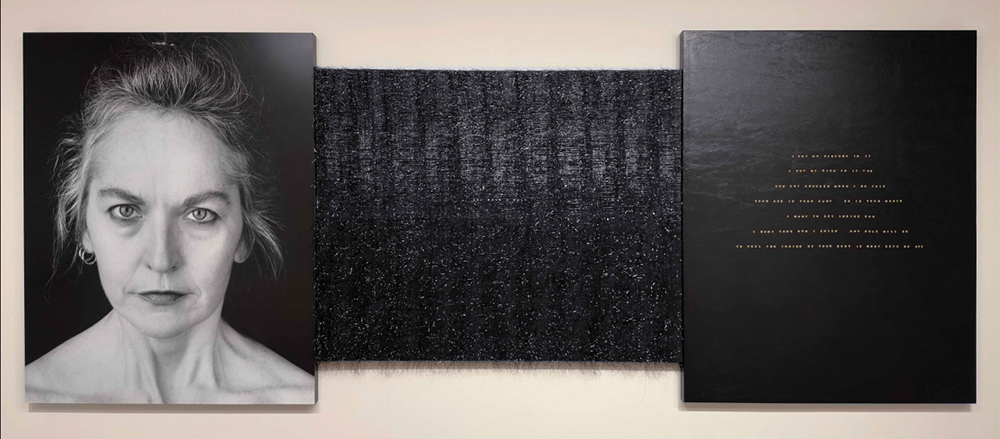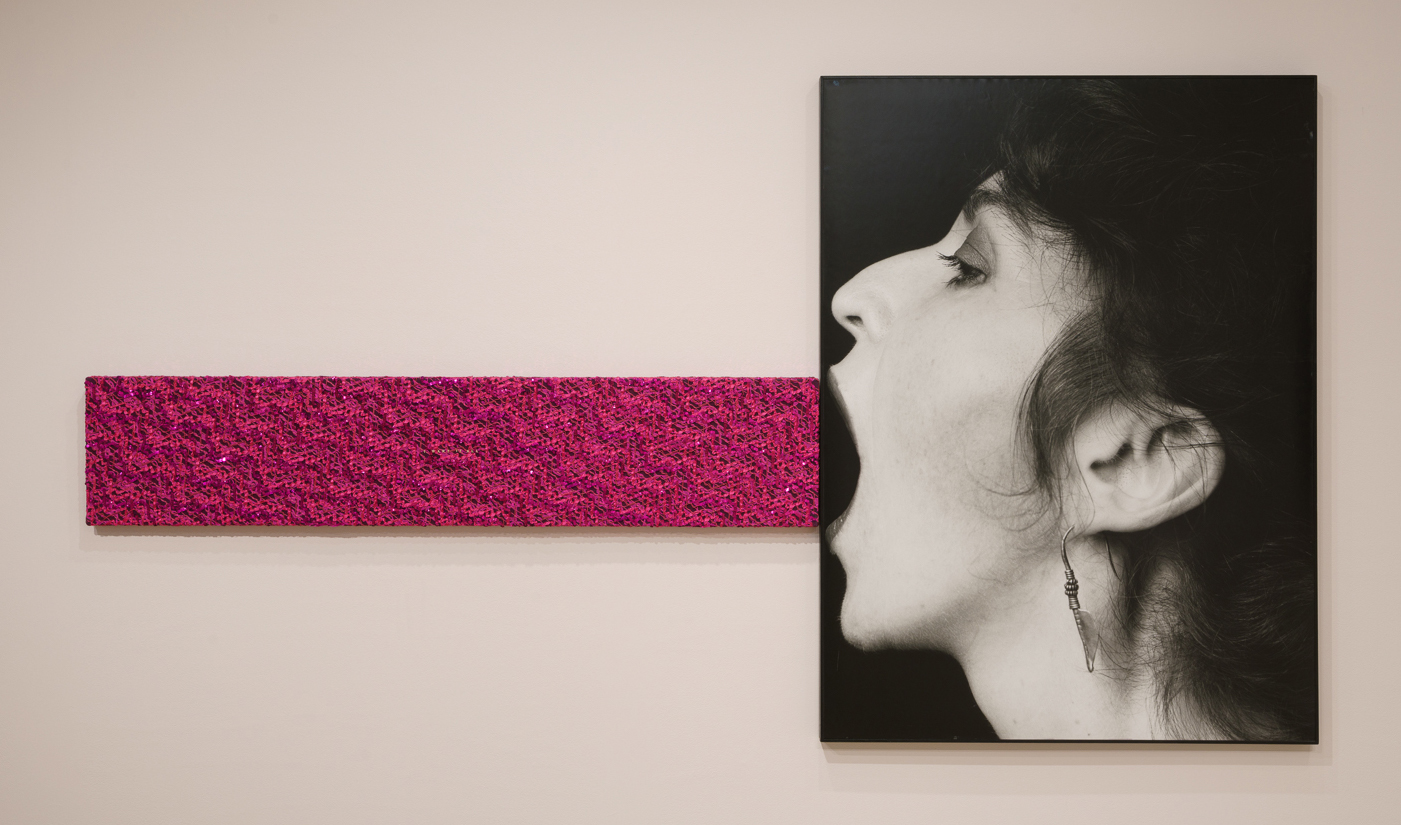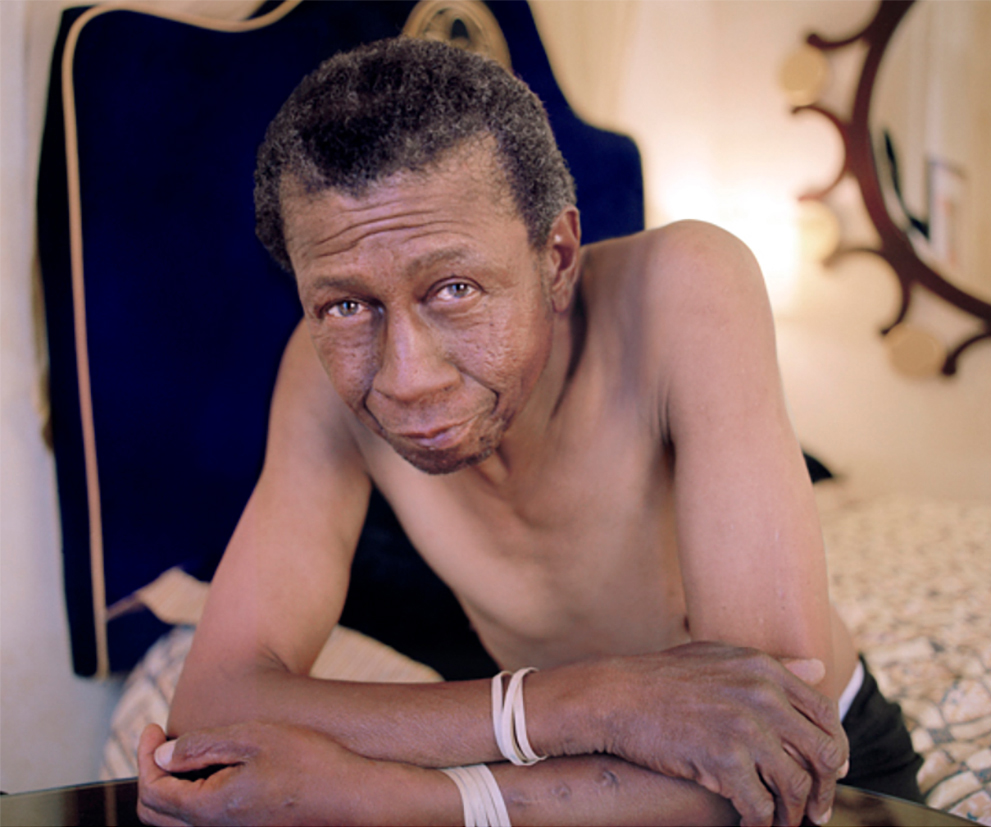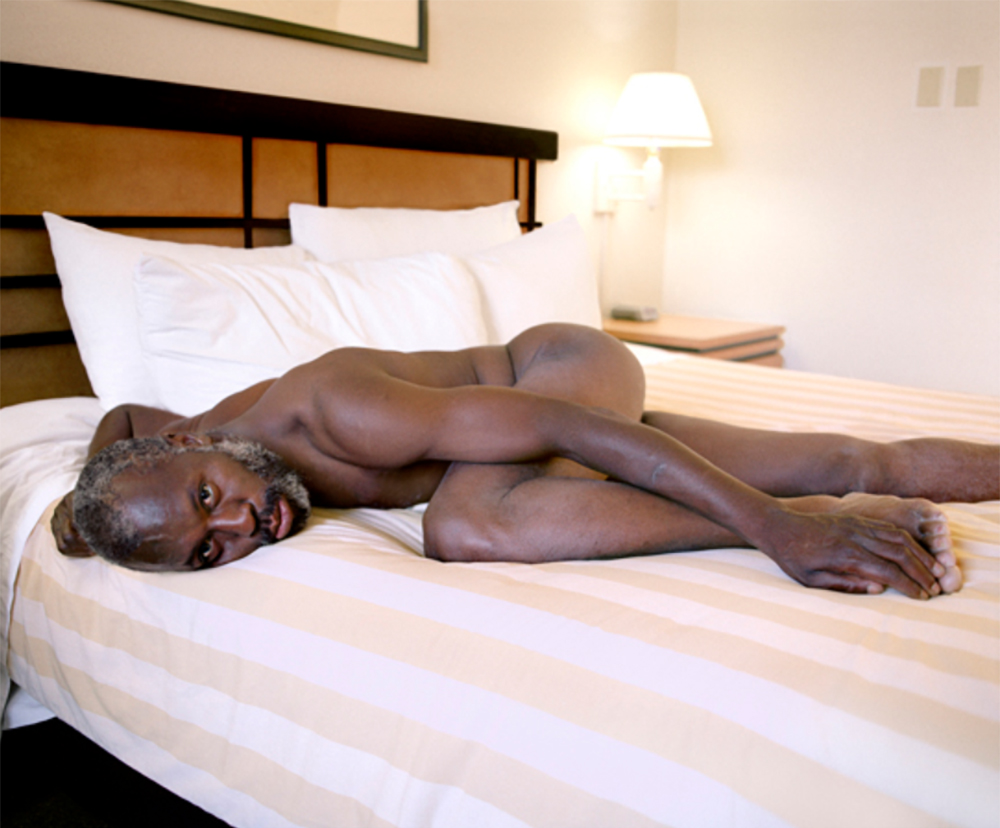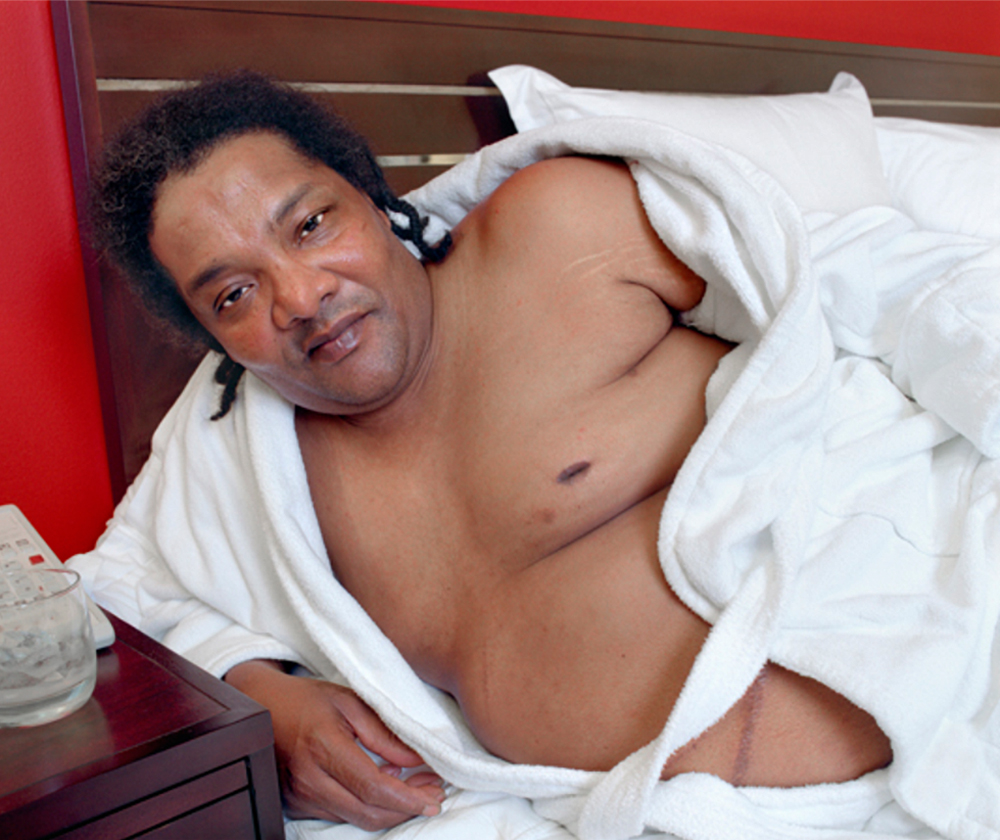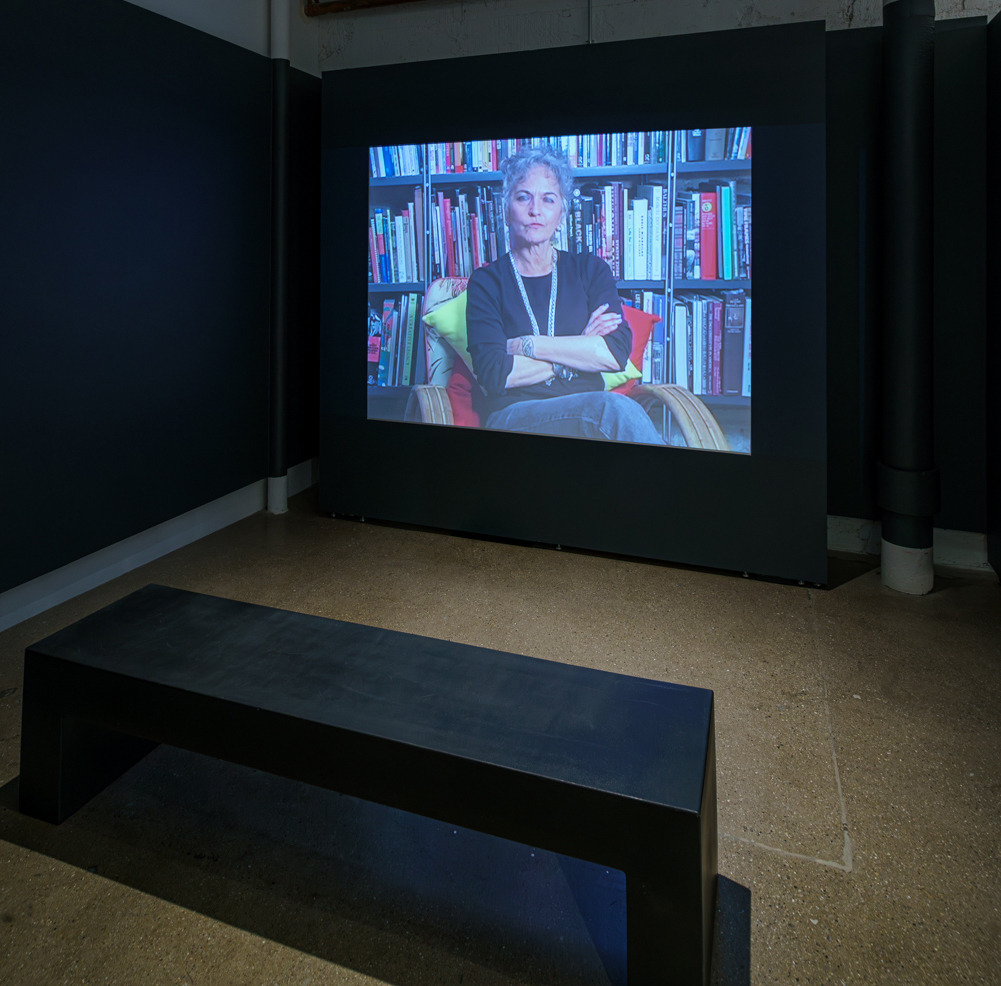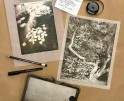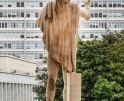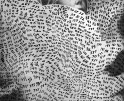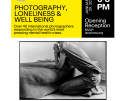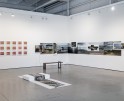Barbara DeGenevieve: In Your Face
“I’ve always thought there should be a sign above the entrance to art schools that says “Warning—Inside these doors you will encounter difficult ideas and many naked bodies, neither of which is life threatening.”—Barbara DeGenevieve
In Your Face at the SAIC Galleries of the School of the Art Institute of Chicago is a retrospective of the work of photographer and educator Barbara DeGenevieve (1943-2014) that continues to provoke questions about sexuality, gender, pornography, censorship, race, class and representation. What our current moment makes clear is that the latest chapters on these topics are still being written.
Video, photography and installation pieces from 1978-2012 are featured alongside text panels that share DeGenevieve’s intent, citing the cultural and political backlash her work often received. Her colleague and fellow educator, Alan Labb, with support from Professor Lisa Wainwright, curated the exhibition with counterpoints that keep theory and practice in conversation.
DeGenevieve embraced the label “transgressive artist” and her blend of humor, frankness and intellectual rigor that made her a revered colleague, impassioned teacher and boundary-pushing advocate for artistic freedom are evident in the video interviews that introduce the show. Works by significant artists of her generation who similarly faced censorship provide historical context. A selection of books from her vast library are an open resource for visitors, along with her notebooks and materials that provide insight into her artistic process and methodology. A comprehensive website (https://web.saic.edu/bdg/) preserves her artwork, writings and pedagogy as a resource.
Early works from 1977-85 explore female desire and autobiography and include a tower of video tapes from the porn site she created, now encased and protected from view. A room of haunting Cliché Verre (glass plates) and prints disassemble and reassemble the fractured self. Large scale works and narrative panels in mixed materials simmer with defiance, humor and sexual agency, voicing feminist themes from the 1980s and 1990s.
DeGenevieve’s work about sex and power variously rankled feminists, the left and the right, and institutions. During the National Endowment for the Arts funding controversies of the early 1990s known as “the culture wars”, when in 1994 she, Andres Serrano and Merry Alpern were stripped of their grants from the NEA, her work was deemed pornographic. She responded, “In no way could my work before 1994 be categorized as pornographic, except by those who think that any representation of sexuality is pornographic.”
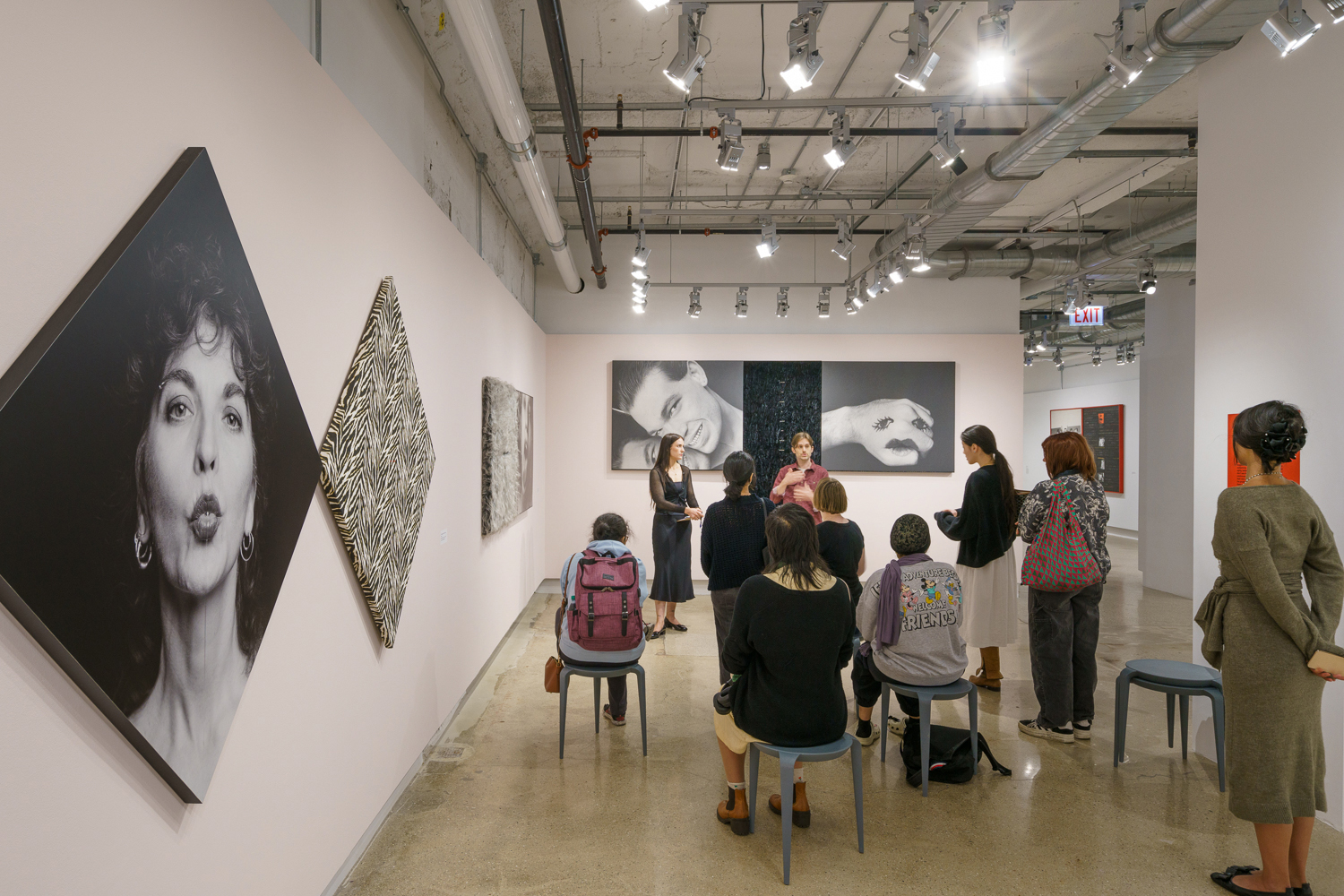
Students discussing DeGenevieve’s work from the 1995 cancelled NEA award. Photo credit: Kirk Gittings
The grant reversal changed her approach, and her work became intentionally more explicit, pushing back at what she described as “a self-monitoring…that now occurs, and must occur to some extent in order for artists to protect themselves from the vagaries of the ‘fuzzy logic’ employed in the interpretation of lens-derived imagery that is sexual in nature.” As DeGenevieve used to jokingly tell her students, “You’re in America, you can do anything” but be prepared for the consequences.
What continues to be her most divisive work, The Panhandler Project, is a series of photographs and videos in which DeGenevieve documented encounters with five unhoused Black men who agreed to model nude for $100. Her sexualized depictions knowingly reference art historical precedents while deliberately raising ethical questions. The contours of power and edges of control blur in other works like Desperado, a documentary within a pseudo-documentary chronicling the unexpected seduction and year-long interaction between a university professor (DeGenevieve) and a former truck driver from Louisiana. The faculty and students at the school debated whether to include these works in the exhibition and ultimately did so with
Theory undergirded DeGenevieve’s practice and she passed this on to her students. “I take responsibility for my political incorrectness and I want people to think and engage me in discussion, debate or argument about my ideas. As an artist I’ve been trained to question everything, which continually creates new ways of seeing the world. This is often destabilizing but it is ultimately what keeps me engaged as an academic, a teacher and an artist.”
Highlighting DeGenevieve’s imprint, a symposium on transgressive pleasure focused on radical pedagogy, interclass contact and the erotics of art. Subversive Pleasures, an exhibition within an exhibition, features work by 24 students in response to one of DeGenevieve’s legendary assignment prompts. For curator Alan Labb, “this is the heart of the exhibition; I believe the strength of the responses illustrates that the work is still relevant to the current students and, with age, has not lost its appeal or relevance.”
Barbara DeGenevieve (1947-2014) was an interdisciplinary artist who worked in photography, video, and performance. She lectured widely on her work as well as subjects including sexuality, gender, transsexuality, censorship, ethics and pornography. Her writing on these subjects has been published in art, photography and other scholarly journals, and her work has been exhibited internationally. She was awarded two National Endowment for the Arts Visual Artists Fellowships and was the recipient of three grants from the Illinois Arts Council, among others. DeGenevieve was a Professor and Chair of the Department of Photography at the School of the Art Institute of Chicago. She received her MFA in photography from the University of New Mexico in 1980 and the same year began teaching at the University of Illinois Urbana-Champaign. Before joining the faculty at the School of the Art Institute of Chicago in 1994, she taught at San José State University, the San Francisco Art Institute, and the California College of Art.
Posts on Lenscratch may not be reproduced without the permission of the Lenscratch staff and the photographer.
Recommended
-
Beyond the Photograph: Editioning Photographic WorkJanuary 24th, 2026
-
Ben Alper: Rome: an accumulation of layers and juxtapositionsJanuary 23rd, 2026
-
Reservoir: Loneliness, Well-Being and Photography, Part 2January 22nd, 2026
-
Reservoir: Loneliness, Well-Being and PhotographyJanuary 21st, 2026
-
Dawn Roe: Super|NaturalJanuary 4th, 2026

